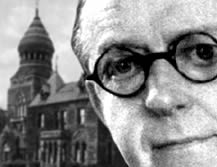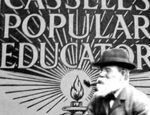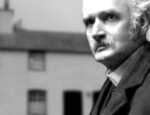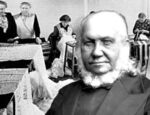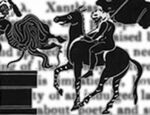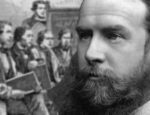Description
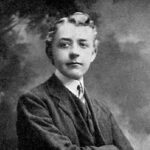 Join Philip Inman (1892-1979) at the brink of death from TB where, recalling the words of Plato’s Socrates, he reflects on his own mortality: “’To meet Orpheus and Homer, Musaeus and Hesiod,’ said Socrates, ‘what would you give for that? I would give a hundred deaths if it is true.’” Inman was born in Knaresborough, Yorkshire, and brought up by his widowed mother in a cottage with barely an income and no running water. After a string of odd jobs, at 12 years old he worked as an errand boy to a boot shop. The price for full time education at the local Technical College (£4 p.a.) plus the cost to the family of his not working meant that going back to school was impossible for Inman. But everything was to change when he became apprenticed to a chemist at Taylor’s Drug Store.
Join Philip Inman (1892-1979) at the brink of death from TB where, recalling the words of Plato’s Socrates, he reflects on his own mortality: “’To meet Orpheus and Homer, Musaeus and Hesiod,’ said Socrates, ‘what would you give for that? I would give a hundred deaths if it is true.’” Inman was born in Knaresborough, Yorkshire, and brought up by his widowed mother in a cottage with barely an income and no running water. After a string of odd jobs, at 12 years old he worked as an errand boy to a boot shop. The price for full time education at the local Technical College (£4 p.a.) plus the cost to the family of his not working meant that going back to school was impossible for Inman. But everything was to change when he became apprenticed to a chemist at Taylor’s Drug Store.
“To help me pass my examinations, it was arranged for me to take evening lessons with a private tutor, by name Professor Daniels. I went to him three evenings a week for Latin, French and English… From then on every penny I could spare was spent on the cheap reprints of the classics then available… I owe Professor Daniels more than I can ever say. He was literally my guide, philosopher and friend…”
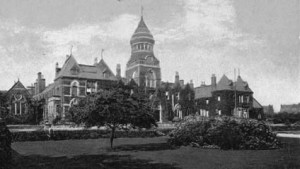 Thanks to Daniels’ inspiration and guidance, Inman embarked on a formidable course of self-education that took him through a correspondence course (19th century distance learning), a Mutual Improvement Society’s debating club (sponsored by Methodists), and eventually Headingley College, Leeds, where on arrival (at the age of 20) he “stared absolutely entranced, at those hundreds and hundreds of books. I reminded myself that they were all at my disposal, to read whenever I wanted to… I had hungered for this for years and now I had it.”
Thanks to Daniels’ inspiration and guidance, Inman embarked on a formidable course of self-education that took him through a correspondence course (19th century distance learning), a Mutual Improvement Society’s debating club (sponsored by Methodists), and eventually Headingley College, Leeds, where on arrival (at the age of 20) he “stared absolutely entranced, at those hundreds and hundreds of books. I reminded myself that they were all at my disposal, to read whenever I wanted to… I had hungered for this for years and now I had it.”
Soon after the declaration of war (1914) Inman was discharged from the army and diagnosed with TB. He grew increasingly ill until that fateful blood-spitting day on which he settled down to die and thought of Socrates. By some miracle (and/or misdiagnosis) he subsequently made a full recovery and went on to become an extremely successful manager of numerous charitable organisations, an MP in Clement Attlee’s government and even the Chairman of the Board of Governors at the BBC. Baron Inman would reflect in his memoir: “when I sat at the head of the board-room table of two large general stores which had boot and shoe departments, that you are still the same errand-boy who used to drag round a bag of cobbler’s repairs to the back doors of customers’ houses.”

